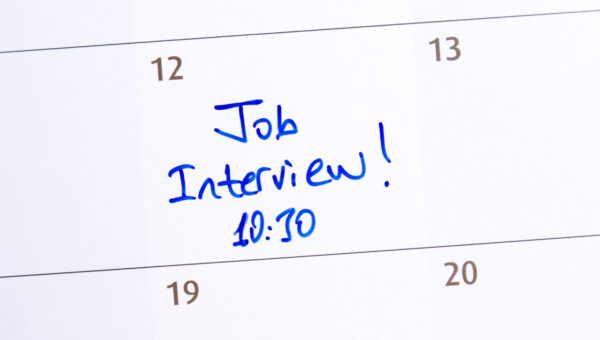I recently had the opportunity to be interviewed for several nursing positions, and each experience gave me some serious food for thought about nurse job-seekers and what they endure when searching for a new job.
If you’re in the job market, the reality of the interview process is that it’s fairly nerve-wracking for most people. There’s so much to think about when you’re prepping for an interview, and waiting for a job offer or some constructive feedback can feel like sitting on pins and needles. You’re definitely not alone if you have the nursing job interview blues.
Just Landing an Interview Can be Hard Enough
When you’re hot on the trail of a new job, just getting to the point of landing an interview can be a long and sometimes frustrating path. Despite a nursing shortage, competition can be fierce in many markets, especially in places like Atlanta, the San Francisco Bay Area, New York City, Dallas, Boston, etc. However, the challenges can be no less difficult, even in smaller cities and towns.
Reaching the moment you’re asked to sit for an interview involves many steps. These can include combing online job boards and facility websites for open positions, filling out redundant online applications (why can’t there be a universal online application, anyway?), tweaking your resume if necessary, and writing compelling cover letters that don’t feel cookie-cutter or cliché.
On top of it all, once you click “submit,” your online nursing job application enters a digital black hole where it’s unclear if an actual human being will see it. An applicant tracking system (ATS) is a bot that scans resumes for keywords, and your resume reaching a real person depends on a thumbs up from the bot.
So even before you’re offered an interview, there’s a lot to think about and do when it comes to the cause of getting a new nursing job.
The Blues of Job Interviews
With a nursing shortage, healthcare organizations would fall over themselves to interview and hire nurses for open positions. Despite demand, many nurses report the experience of their job applications falling into the digital black hole, never to be seen again.
And, just like I recently experienced, it’s not necessarily uncommon to never receive a word about the outcome of an interview, even in the form of a simple rejection letter. In my case, the discussions went very well, with a great deal of laughter and the nodding of heads in enthusiastic agreement with my responses.
In terms of the impact of 21st-century technology on job interviews, a few years ago, I interviewed over video, but there was no interviewer. Instead, a video recording captured my responses to questions that were flashed on the screen. I hope that the interview strategy dies a well-deserved death.
What to do When You Have the Job Interview Blues
When you have acute job interview blues, it’s time for some sorely needed intervention.
The first thing to acknowledge is that you have little control over most aspects of the process. While you might do things differently if you were in these employers’ shoes, the fact remains that you’re at the mercy of however they go about it, no matter how rude and inhumane their actions might seem.
Unfortunately, you can’t control your application’s entrance into the infamous digital black hole. You also can’t control whether you’re invited for an interview. Likewise, whether you receive a job offer or a rejection letter is equally out of your ken, and it’s shocking how many employers will leave you hanging and never get back in touch.
Other things you can’t control are what questions are asked, your interviewers’ attitudes, the tone of any particular interview, and how much time you’re given to ask any questions you may have.
So, when you have the job interview blues, remind yourself of what’s actually within your control:
- Remember that every job interview is research data that tells you which employers are worthy of having you as an employee and which ones are companies to avoid
- Every interview is also an opportunity to practice skills like thinking on your feet, being conscious of your body language, and coming across as sincere and authentic
- You have the right to ask questions in a job interview, and following up afterward is appropriate, even if they don’t reach out to you
- Remind yourself that if they aren’t kind enough even to let you know you’ve been rejected, you don’t want to work for them anyway
- Your resume and cover letter are entirely within your power in terms of personality, design, style, and how you want to come across
- If a potential workplace feels toxic or unhealthy based on the interview experience, you don’t need ever to work there
- You could seek out smaller organizations and practices that do the hiring process the old-fashioned way — there are fewer now, but they’re still out there
The nursing job market can seem rather cutthroat and inhumane, but you’ll also encounter great people along the way. Remember that you’re a valuable professional with skills, knowledge, and enthusiasm to contribute; any employer would be lucky to have you.
When you have the nursing job interview blues, remind yourself that there are better days ahead, and you have the wherewithal to find a great position and a workplace that will appreciate you and treat you like you deserve. Now your job is to get out there and find them.
- The Road to Becoming an FNP - April 22, 2024
- Embracing Cultural Competence and Cultural Safety - April 17, 2024
- Advancing Your Nursing Career Through Certifications - March 25, 2024



